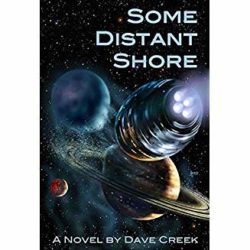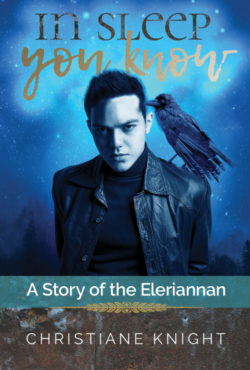by

Queer Handmaid's Tale meets hyper-capitalist dystopia. Nonbinary, queer main character
BREEDER is set in a distant but bleakly familiar future, where each person exists to repay Units to the violent Corporation. But girls and women can only be Breeders in this world, and can only repay the Corporation through reproduction. Is the price of survival worth the cost of submission?
Will Meadows is a seemingly average fifteen-year-old Westie, who lives and works in Zone F, the run-down outermost ring of the Corporation. In the future state of the Corp, a person’s value comes down to productivity: the right actions win units, the wrong ones lose them. If Will is unlucky and goes into unit debt, there’s only one place to go: the Rator. But for Zone F Breeders, things are much worse—they’re born into debt and can only accrue units through reproduction.
Every day in Zone F is a struggle, especially for Will who is fighting against time for access to an illegal medical drug, Crystal 8. Under the cover of night, Will travels to the Gray Zone, where life is less regulated and drugs—and people—are exchanged for gold. There, Will meets Rob, a corrupt member of the Corporation running a Breeder smuggling operation. Will also meets Alex, another teen whom he quickly recognizes as a Breeder in disguise.
Suddenly, Will has an illicit job and money, access to Crystal, and a real friend. As the pair grows closer, Alex shares her secret: she is part of the Response, an uprising to overthrow the Corporation. Caught up in the new friendship, Will and Alex become careless as the two covertly travel into Zone B for a day of adventure. Nothing goes as planned and Will’s greatest fear is realized. Will his true identity be revealed?
- 2 To Be Read lists
Genres:
Tropes: Abandoned Place, Antihero, Band of Misfits, Dystopian Governments, Evil Megacorporation, Humanity is Dangerous, Post-Apocalyptic, Reluctant Hero
Word Count: 60,000
Setting: burnt out future world
Languages Available: English
Tropes: Abandoned Place, Antihero, Band of Misfits, Dystopian Governments, Evil Megacorporation, Humanity is Dangerous, Post-Apocalyptic, Reluctant Hero
Word Count: 60,000
Setting: burnt out future world
Languages Available: English
My name is Will. Naming me was the last thing my mother did before she died. Sometimes I tell myself a story for comfort. In this story, my mother wanted to give me a name that was a secret message, the only one she would get through to me. I imagine that my mother looked back over her short and crappy life and thought about all the hell that lay ahead for me, and the message she wanted to pass on was Have strength, be resilient. Will. I give you Will. Sometimes I even imagine that she wanted to say something more—I’m happy you were born, Will. I love you and want you to survive. But I don’t think she actually loved me, and I know she wasn’t happy that I was born. She killed herself a couple of hours after I came into this world. I don’t blame her—she was only thirteen years old.
READ MOREThe note she left behind just said: “Baby Name Will.” She couldn’t write that well—she was a Breeder, after all, so she’d never been to school. My Ma never, ever talks about her, or about what happened, and mostly, I don’t dare ask.
My name is Will. I’m a Westie. I live in Zone F. My Corporation account is in credit. These are the things I say clearly and quickly to any CSO—Corporation Security Officer—who asks. These are the facts that flash on a screen, whenever I push my wrist against a security scanner: when I get on the bus, when I log on at school or work, and when I go through my front door in the evening. Twenty times a day—at least.
“Will?”
I look up. Sir is frowning at me. “We’re waiting,” he says. I nod, staring at the icons on my screen. I’m nauseated—everyone is. It’s Evaluation Day. But for me, it’s also because of the Crystal 8 withdrawals.
I click on the first icon, Profile, and everyone watches my screen projection at the front of the classroom.
Name: Meadows, Will
Sex: Male
Type: Westie
Age: 15
Guardian: Meadows, Jessica
Siblings: 0
Academics: Average
Physical: Below Average
Psychology: Average
Employment: Desalination Plant—Technical
Long-Term Track: Desalination Plant—Technical
“Next screen, please, Will,” Sir says. He’s alright, Sir: he suffers almost as much as we do each Evaluation Day, and you can feel him wishing us all to pass. Not like our teacher last year—that bastard looked ecstatic whenever there was a Corp alert, and he loved it when Craig Jacobsen’s screen flashed Unsatisfactory and we went into lockdown until the CSOs arrived and took Craig to the Rator. They didn’t even send Craig to the Circle for retraining—just straight to the fucking Rator.
The tension rises as I hover over the second icon: Units. Our units are aggregated daily and reported every month on Evaluation Day. But the Corp changes the algorithm each month, so you can never tell for certain whether you’re going to measure up.
“Will?” Sir says again; his tone is anxious.
I click, and quickly scan to the bottom of the screen.
Units invested in Will Meadows by the Corporation to date:
* Social: 42,687
* Material: 54,679
* Education: 19,677
Units returned to the Corporation by Will Meadows to date:
* Work output: 33,543
* Education output: 0 (N/A—Westie, Zone F)
* Genetic output: 0 (N/A—Westie, Zone F)
* Projected genetic output: 0 (N/A—Westie, Zone F)
* Projected lifetime debt owed to the Corporation: 480,000
* Projected rate of pay-off: 12,000/year
* Projected time to pay off: 40 years
* Projected rate of pay-off: Satisfactory
Overall result: Satisfactory
Satisfactory. Everyone claps. My mind buzzes as Sir smiles at me and then moves on to Sandeep Michaels. I breathe out, relieved. I wasn’t really that worried, since each month I hustle extra units on the side through the Gray Corps. Hustling Gray units isn’t a problem—as Ma says, the Corp usually looks the other way at the Gray economy, because the Corp benefits from it. But you never know if someone has been secretly reporting on you for working too slowly during a shift or cracking a joke about the Corp to the wrong person, which is what happened to Craig.
As Westies, we are allowed to be in a state of increasing debt to the Corp until we turn twelve—then we’re expected to return units. Our class started out with half-days at the desalination plant and now we all do four and a half days per week. Our half day of “school” is timetabled for different days each week—it depends on when we’re most needed at the plant. On high-demand weeks, they just skip timetabling our school session altogether, which is fine with me. It’s not like we’re actually getting an education. All we do is go through our history and discuss ways to maximize the units we can give back to our generous Corporation, which has so selflessly protected us.
We’ve been evaluated every month since we were toddlers. If you’re a Westie male, you get sent to a training center as soon as you’re toilet trained. The center matches you to a school and future workplace, based on your Zone and test metrics, as well as any units your family is able to give you. If you’re very lucky, your parents and grandparents have earned a lot of Legacy units from the Corp to pass down to you. If that happens, you may get sent to a proper school in Zone E; we sure don’t have any in Zone F.
For Zone F Westie guys like me, with zero Legacy units, there’s nowhere to go. I’m of average intelligence and slightly below average in physical health. If I’m lucky, and I work hard, and keep up my side hustles, I’ll get to keep working at the desal plant. Hopefully, in twenty years or so, I’ll have saved up enough units to buy a Shadow from the Incubator. Maybe she and I will be one of the 5 percent who have live births, and we’ll work our asses off to give a surplus of units to our son. Maybe I could give that kid a chance at a Zone E life in plant management, or even, dare to dream, a semiprofessional job in Zone D.
If I’m unlucky, I’ll screw up my units and get sent to the Rator.
For Breeders, of course, things are much worse. They’re born into debt that they’re not allowed to pay off themselves. But that’s another story.
After evaluation, it’s time for history. Sir puts on The Horrors of the End Times. All our history lessons are based on this two-hour Corp documentary, and we’ve watched it about six hundred times. The documentary stars and is narrated by Jock Hordern, the Corp film star. The Horrors of the End Times is the biggest budget film ever made by the Corp. It re-creates our country’s apocalyptic period with detailed CGI: the global warming that caused the rise of the oceans, the giant walls of fire and the droughts that decimated the land, and the chemical rains that poisoned the rivers. Then the Fourth World Depression came, and the world wars followed. The Horrors of the End Times portrays the resilience of the original survivors, a group of just ten thousand people, huddled in a northeastern town, now Zone A. These scenes were actually filmed in the original settlement. It hadn’t always been a coastal city, of course—before the global warming events, it was inland a few miles, with a very famous college that educated the richest people in our country, and from all over the world. But after the oceans rose, it became coastal—bordered by the chemical ocean to the east and the badlands to the west. Even here, in the relative safety of the settlement, people collapsed in the street from starvation. Babies died from minor infections because there was little medicine, and plagues tore through the weakened population. Fertility plummeted and has never recovered. Only 5 percent of humans are now capable of having their own children. The Corp decided that the mass fertilization of Breeders would be the only way to maximize reproductive output and prevent humanity dying out. So unless they’re part of that 5 percent, the Breeders are surrogates, impregnated with the genes of the fertile.
The Corp also decided that kind of poverty and starvation and war was never going to happen again. It wasn’t possible to look after everyone, so they drew a line around the settlement. The people inside had to sign up to new laws. First—once the borders were set, nobody could go in or out. Second, no government—the World Depressions were caused by government interference, and the best thing was to let the market take care of itself. Third—all decisions were to be based on the principle of what benefits the economy. “Some troublemakers wanted a bill of rights,” Jock Hordern pontificates, “but rights were part of the degeneracy, part of the End Times. There are now over five million people inside the Wall. We’re the lucky ones.”
I honestly couldn’t give a shit about the End Times. I mean, I get it—hundreds of years of violence and famine, disease and horror. It was terrible, and it’s great that it’s over. I’m glad I live in the Corporation. Thank you, dearest Overlords. But reciting the same history, over and over, does my head in. I bet my classmates feel the same way, but nobody would ever say that out loud. Like I said before, you never really know who’s in contact with the Corp, trying to get extra units by snitching.
I pinch my leg to stay awake.
When the documentary is over, Sir gets us to take turns retelling our understanding of the history. Mathew Anderson begins, repeating the opening of the documentary word for word:
“After the global environmental disaster came the Fourth World Financial Depression, over a billion people starved to death, which led to a vicious war over the meager resources that remained. Then came the pandemics.”
The Corp doesn’t say how many years have passed since the initial settlement. I tried to track it through Ma’s stories, counting the generations. Her grandmother’s grandmother’s grandmother was a child then. That girl only survived because she was taken in as a Breeder. The rest of her family was turned away at the border and died of starvation because the Corp already had too many workers. The stages of development, from initial settlement, to incorporation, to full zoning must have taken years.
The Crystal withdrawal makes me feel nauseated and sleepy. My stomach lurches, and I pinch my leg again to stay alert.
Mathew Anderson then recalls the Cannibalism of the Innocents—the Corp’s way of dealing with a bad harvest one year—which is everyone’s favorite scene in The Horrors of the End Times, and that makes us all sit up in our seats.
But before Mathew can really get into it, our screens go blank. Sir reads out in a flat voice, “Could everyone turn their attention to the front of the room, and recite the following points, please.” It’s a Mission Statement. Our personal computer screens stay blank and the text appears on the big screen at the front of the room.
All over the Corporation, Westies from Zone B to Zone F are stopping what they are doing at this exact moment and are reciting in unison. Only Zone A is exempt, because Zone A is exclusive to the Corp. Reciting our Mission Statement is meant to help us Westies focus on our goals, make us feel united, and improve our productivity for the Corp. It reminds us where we, as Westies, have come from, and why we do what we do. I don’t look at anyone. I just start reading along with everyone else, in as quiet a voice as I can manage without being cited:
“After the End Times, the country’s population was decimated. My People of the West found themselves in fire-burned land, unable to live.
“The people of the East pooled their resources and formed a Corporation to survive.
“My People of the West began their Final Migration to the East.
“The Corporation generously opened the Walls of their settlement to my People of the West.
“My People of the West owe a great debt to the Corporation. As a Person of the West, I am eternally grateful to the Corporation.
“I promise to maximize my units, in order to at least partially repay the Corporation’s generosity in hosting me.
“In good faith, the People of the West will repay the Corp through either Work or Breeding.
“I promise to uphold the Breeder Laws.”
The room is very quiet. Everyone has just said Breeder out loud, and it’s not a word that you’re used to having in your mouth. It’s not a word you say in public. Lately, the Corp has stepped up its Breeder campaign; I’ve noticed the ads on the buses. They only started sending twelve-year-olds to the Incubator last year, and it’s still a bit controversial.
Sir is about to say something when the big screen shuts down: it’s the end of our school halfday and time for us to catch the bus to the desalination plant. I put my mask on and head out the door.
The Corporation runs everything inside the Wall.
If you’re not part of the Corp, you’re in debt to them and there is no escape. Will Meadows and his Ma live in Zone F, where Will attends school and works long hours at the desalination plant. Ma gets him his daily doses of Crystal 8, starving herself to be able to afford the drugs. When they run out, Will is forced to become a Breeder runner in the Gray Zone in exchange for a supply of Crystal. In a world where environmental degradation has left most people infertile, Breeder runners smuggle young girls and women into the Incubator, where they are branded, forcibly inseminated, and made to give birth. The smugglers get a cut of the profits. While in the Gray Zone, Will meets Alex, an escaped breeder disguised as an undocumented Wall Kid. When Will is captured by the Corp, he thinks his life is over, but the corruption of the Gray Corps may offer a way out. Will has to find a way to save himself and Alex—or die trying. This short, fast-paced novel set in a futuristic yet terrifyingly familiar world is perfect for fans of Marie Lu’s Legend series. Readers will find themselves fully immersed in the bleak Corporation landscape and the lives and fates of those struggling to survive. Main characters are cued as White.
An absorbing tale of survival in a post-apocalyptic future. (Dystopian. 14-18)






